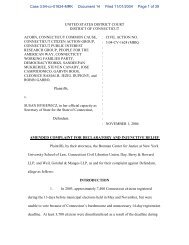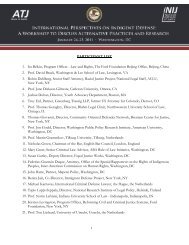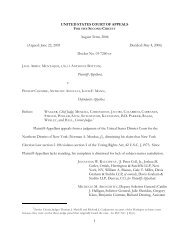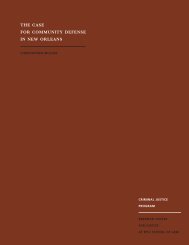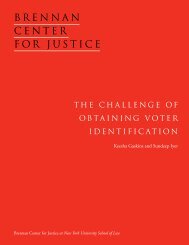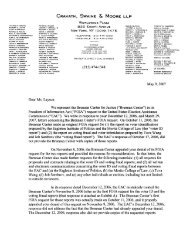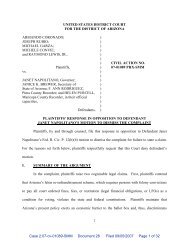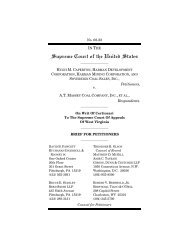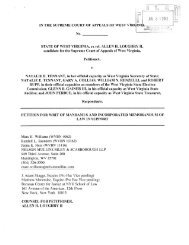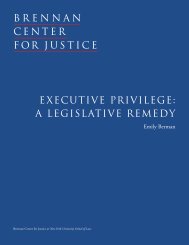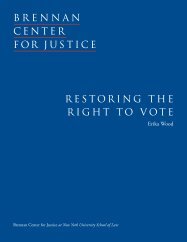MEMORANDUM OF LAW IN SUPPORT OF PLAINTIFFS' MOTION ...
MEMORANDUM OF LAW IN SUPPORT OF PLAINTIFFS' MOTION ...
MEMORANDUM OF LAW IN SUPPORT OF PLAINTIFFS' MOTION ...
You also want an ePaper? Increase the reach of your titles
YUMPU automatically turns print PDFs into web optimized ePapers that Google loves.
activities. See Statement of the Facts (“Facts”) at pp. 7-12, supra. These candidates mustseek the support of the town committee leaders who name the party’s delegates to thedistrict convention. Id. They must petition for ballot status in pre-primary primaries witha group of petitioners limited by state law. Id. They must then run in and win the preprimaryprimaries in order to secure 15% of the delegates. Id. There can be no questionthat the result of this system – which severely limits the number of candidates who obtainprimary ballot access – imposes a severe burden on voters’ First Amendment rights.Only by analyzing the combined effects of these procedures can a court determinehow severe the burden is on “the right of individuals to associate for the advancement ofpolitical beliefs, and the right of qualified voters . . . to cast their votes effectively,”Williams v. Rhodes, 393 U.S. 23, 30 (1968), rights that effectively boil down to the verypractical question of who actually ends up on the ballot. See Anderson, 460 U.S. at 787-88 (“The exclusion of candidates also burdens voters’ freedom of association, because anelection campaign is an effective platform for the expression of views on the issues of theday, and a candidate serves as a rallying point for like-minded citizens.”); Illinois v.Socialist Workers Party, 440 U.S. at 184 (“By limiting choices available to voters, theState impairs voters’ ability to express their political preferences . . . .”). Thus,Connecticut’s ballot access regime must be viewed in its totality and effects, and incomparison with other jurisdictions, not in isolation. See Storer v. Brown, 415 U.S. 724,730 (1974) (no litmus paper test “separates valid from invalid restrictions”); Williams,393 U.S. at 34 (finding that “totality of the Ohio restrictive laws taken as a whole”impermissibly burdened ballot access).26



